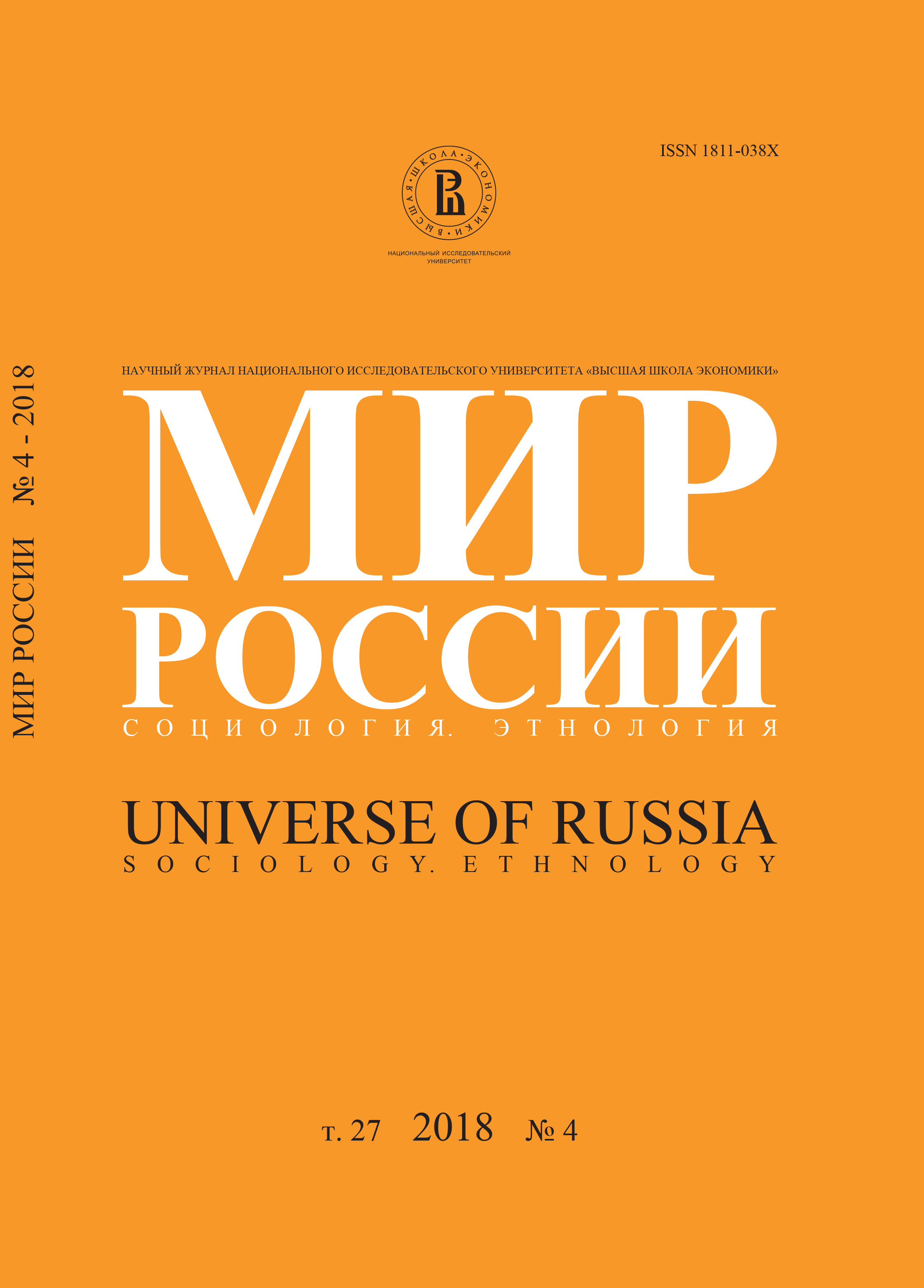Russian Technological Innovation in the Domestic Media (The Case of Technology Parks)
Abstract
Yury Latov – DSc in Sociology, PhD in Economics, Leading Researcher, Institute of Sociology of the Russian Academy of Sciences; Professor, Financial University under the Government of the Russian Federation. Address: 5, Magadanskaya St., Moscow, 129345, Russian Federation. E-mail: latov@mail.ru
Nataliya Latova – PhD in Sociology, Senior Researcher, Institute of Sociology of the Russian Academy of Sciences. Address: 5, Magadanskaya St., Moscow, 129345, Russian Federation. E-mail: yshona@rambler.ru
Citation: Latov Yu., Latova N. (2018) Russian Technological Innovation in the Domestic Media (The Case of Technology Parks). Mir Rossii, vol. 27, no 4, pp. 141–162 (in Russian). DOI: 10.17323/1811-038X-2018-27-4-141-162
This article focuses on the evolution of the discourse on the development of science and technology parks in the Russian media in recent years. The study draws on the results of content analysis using “Medialogia” software applied to a sample of leading Russian media. The authors find that a stable interest has formed in the development of foreign and Russian technology parks in the Russian media. The discourse on the development of technological parks is strongly related to the discourse on the effectiveness of statist policies. The main symbol of policies stimulating technological innovation was
Skolkovo (Moscow Region). However, the construction and appreciation of this symbol in the media was partially devalued because of the unrealistic expectations of its rapid success and by several corruption scandals. Other technological parks (for example, Innopolis in Tatarstan) are covered more positively and constructively, although they are underrepresented in the media compared to Skolkovo. The authors note that media attention often shifts from discussing effective means of stimulating technological innovation to issues of the effectiveness of statist policies in general. However, such discussions are not useful given the lack of relevant competency among the producers and consumers of such information. As a result, the development of technological parks is currently perceived by the majority of Russians merely as one of the state’s initiatives rather than a national project.






